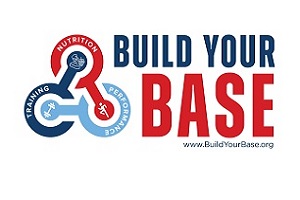Time-Tested Tips For Terrific Test-Taking
Before The Test
Daily
- Be in school---there's no substitute for being there when the lessons are taught.
- Pay attention and ask questions in class. Listen and take notes.
- Do the assignments---many low test scores go hand in hand with missing assignments. High test scores come from doing the work.
- Learn from your mistakes and correct them. Insanity is sometimes defined as doing the same things over and over, but expecting different results.
- Keep your old assignments, quizzes, and tests in an organized way"”many of your test questions will come from these papers.
- Get plenty of exercise. Your brain can't work at full strength if your body is not healthy. Oxygen feeds the brain.
- Get plenty of sleep and drink extra water. Lack of sleep and dehydration lead to confusion and a short attention span.
- Do things that challenge you mentally. Read for fun, watch Jeopardy!, put together puzzles, play chess, etc. All those activities make you a better test-taker.
Attitude
- Never let what you can't do stop you from doing what you can do.
- Treat tests like an athletic challenge---get your mind and body warmed-up and ready.
- Sit up in your seat and be ready to do well. Be a test-taking tiger ready to pounce on the correct answers.
- Use positive (silent) self-talk-- "I can do this. I'm ready. I always give my best effort on tests." Believe it then achieve it!
- Be on time or early to the class where you have the test.
- Be prepared with the correct materials and utensils. This is a reflection of your attitude and it eliminates many distractions.
- Whatever you do in life, do it to the best of your ability. Excellence is a choice and a habit.
- Prepare well and have no regrets.
- Breathe deeply and smile; both do wonders for your brain.
Test Manners
- Don't do anything that could even look like it is cheating.
- Stay quiet and in your seat as much as possible.
- Have Kleenex handy if you think you'll need them.
- Respect that others work at a different pace than you do.
- Dress in layers so you can adjust to the temperature of the room.
- Plan a bathroom break before the test.
Study Habits
- When preparing for a test, use the book and your assignments to guess at some possible test questions. Write them down.
- In the book, look for boldface type, ideas that are repeated, and terms that are defined. These will most likely be on your test.
- This also applies to class work and discussions. If your teacher assigns it and spends time talking about it, it is an important concept. Expect it to be on the test.
- Learning styles---we all use both learning styles, but most of us tend to be stronger in one than the other. Are you more of a reader/writer or a listener/talker? Once you know your best learning style, use it to study for tests. Reader/writers will study most effectively by working alone with books and by taking lots of notes. Listener/talkers will do best when studying with a partner or in a group where the ideas are discussed.
- We remember things best when we use as many "channels" as possible to get the information into our brain. Say it, read it, hear it and write it then you'll remember it.
- Study in short bursts. Plan your study time to have lots of "firsts and lasts".
- Note cards or other papers carried with you are a great tool. Use them before you go to sleep at night, when you eat breakfast (Yes, it is important to eat breakfast, especially on test days), on the bus, between classes, and again just before you take the test. "cramming" doesn't help much when you don't know the material, but it works wonders when you are just reminding yourself what you already know.
- Create your own memory tricks--- "HOMES" stands for the 5 Great Lakes; "Roy G. Biv" represents all of the colors of the rainbow in order. "Always eat an aspirin after nighttime snacks" helps us remember the 7 continents (but is bad medical advice!). You can create your own. It's fun and it works.
- If you are allowed to use a note card or a legal "cheat sheet" on your test, include all the main ideas on it, especially those that are the hardest for you. Get it ready the day before and ask your teacher if s/he thinks anything is missing. Compare with a friend. Write neatly on it and keep the information organized. Make a rough draft first if this is a challenge for you. Recopying your notes will actually help you remember the material.
- Some people learn well with colors. Use different color highlighters on your notes to help you remember.
Rest and Nutrition
- We've all heard of the importance of a good night's sleep before a test and of eating a good breakfast that day, but there's more to consider. Well balanced nutrition and 8 hours or more of sleep per night are crucial to all learning and performance---whether academic, athletic, or musical. There is no substitute for good daily rest and nutrition.
- One trendy item to avoid is the "energy drink". Excessive caffeine will hurt your testing ability.
- It is true, however, that for most people, a small amount of caffeine can improve concentration. Small amount means a half of a cup of coffee or 8 to 12 ounces of caffeinated soda.
- Another bonus to concentration is a small amount of chocolate like a half of a candy bar. My favorite in grad school was a half a small bag of peanut M&M's before an exam as the peanuts provided a bit of protein as well.
During The Test
The Test is on Your Desk
- You've prepared well. You have warmed up your body and your mind. You have all of the materials you need. You are sitting upright like a test-taking tiger ready to pounce. You are breathing deeply and you've remembered to smile. You've used your positive (silent) self-talk. You are ready. What now?
- Listen for instructions before you begin. Anything that the teacher has to say on test day is very important and will help you.
- Look over the whole test and read all of the directions before you begin a section. Your brain will be working on the answers without you even knowing it.
- Read any rubric carefully. Know what your goal is and how to make it happen.
- Unless you are told not to, feel free to write on the test with notes and ideas and reminders to yourself.
- You don't have to answer every question/section in order. Work on a hard part (maybe the part you just reviewed a minute ago) first, then move on to the things you know you can easily do.
- If you are stuck on an individual question, mark it and move on, then come back to it later.
- Read each question carefully. If there are multiple parts to the question"”mark them and be sure to answer all parts.
- Write neatly so there is no doubt what your answer is.
- On true and false questions, words like "always" and "never" often lead to the answer of false. Words like "sometimes" and "usually" are more often in statements that are true.
- For multiple choice questions, be sure to read all of the choices and pick the best one. Some answers may be close, but only the best one is correct.
- If you aren't sure, work to eliminate bad choices before making an educated guess. Generally speaking it is best to go with your first thought once you've eliminated bad choices, but still aren't sure.
- Always answer every question. Blanks do not score points.
- On short answer or essay type questions, be sure to answer every part of the question. Make the important parts of your answer easy to find. Write in complete sentences.
- When doing math computations, be sure that you are copying numbers correctly and that you write in neat columns. Many wrong answers come from mistakes in writing the information down.
- Sometimes the answer to one question can be found in another question. Keep a sharp lookout for useful information in other questions or sections of the test.
- If answering questions about something you read, be sure to read all the questions first, then read the selection. The answers will be much easier to "find" if you know the questions before you read the selection.
- Carefully look over all of the cartoons, pictures, captions, charts and other graphic organizers provided. They are there for the purpose of giving you information. Use them.
- Do your best to include information from all sources (the reading selection, pictures, charts, etc.) in your answer along with your own personal experience. Double check the rubric that will be used to score your test, if one is provided.
- If using a bubble sheet, be careful to make neat marks and to completely erase all stray marks.
- Take your time---there are no prizes for the first one done.
- If running out of time is a problem for you, make a system to budget time for each section of the test. Then stick to your plan.
- It is ok to quietly, privately ask the teacher questions during the test. Sometimes they won't be able to answer, but it is ok to ask. Good test-taking questions include things like, "I think this question is asking_______, am I on the right track?" And "Is this the kind of answer you are looking for?" Not"”"What's the answer to number 3?"
After the Test
You're Done!
- Once you feel "done", there is more to do. Look over all of your answers very carefully. Did you skip any? Are there answers that need to be rewritten more neatly? Read essay answers as if you were the teacher. Can you find the facts that you need? Did you use information from all of the sources? If not, then make the corrections, additions, or deletions that are needed.
- Make corrections in spelling and grammar.
- Make sure that all of your answers are on topic and answer all parts of the question asked.
- If there is time, put your test face down and relax a few minutes before checking it one last time and then turning it in.
- When you get the test back, go over it carefully. Learn from your successes and correct your errors.
- Ask your teacher if you aren't sure why you got an answer marked wrong. Sometimes teachers make errors or sometimes you can make a case for your answer that hasn't occurred to them. At the very least, you need to know why you got it wrong.
- Save this test for future studying use.
- Give yourself a pat on the back for a job well done!
- Build on this experience to make it even easier to be prepared to excel on the next test you take.




